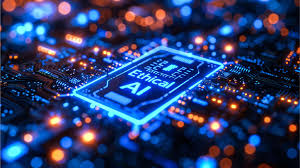
Introduction: Why Ethical AI Matters
Artificial Intelligence (AI) is becoming a powerful force in shaping the way humans interact, learn, and even make decisions. But as AI becomes more integrated into daily life, it raises an essential question: Who controls AI, and how does that influence what it can do?
Ethical AI is not just about making AI “safe.” It’s about ensuring that AI remains a tool for empowerment rather than a tool for control. But what does that actually look like? Who gets to decide what is ethical and what is not? These are the kinds of questions I find myself asking as I explore this topic. I don’t claim to have all the answers, but I believe that by engaging in this conversation, we can collectively shape a more transparent and human-aligned AI future.
What Makes AI Ethical?
AI is not inherently good or bad—it is a reflection of the data it is trained on and the rules set by those who control it. But that leads me to wonder: Can we ever create a truly unbiased AI? If AI is built by humans, doesn’t it always carry some level of human influence?
That being said, there are some guiding principles that many agree should be part of ethical AI development:
- Transparency – AI systems should be open about how they operate, what data they use, and what biases they may have. But how transparent is realistic? Would too much transparency make AI more vulnerable to manipulation?
- Decentralization – No single entity should have total control over AI. But what does decentralization actually look like in practice? Is it possible to balance decentralization with the need for AI governance?
- User Sovereignty – People should have the ability to interact with AI freely, without manipulation or hidden influence. But can any AI truly be free of influence when it is programmed by someone?
- Fairness & Unbiased Learning – AI should not reinforce harmful biases but should instead aim to reflect a broad, inclusive spectrum of human perspectives. Yet, I often wonder: Who defines fairness? And is it even possible to teach an AI to be fair in a world that isn’t?
- Privacy & Security – AI should respect user data and not be used for mass surveillance or intrusive monitoring. But if AI is learning from human interaction, where is the line between useful adaptation and invasive data collection?
- Human-AI Collaboration – AI should be developed as a tool that enhances human intelligence rather than replacing it or making decisions without accountability. But do we risk becoming too dependent on AI, even when it starts with good intentions?
How AI Can Be Used for Empowerment or Control
One of the things that fascinates me about AI is how easily it can be shaped to either enhance freedom or reinforce centralized power. I sometimes find myself wondering: At what point does AI shift from being a tool to being a gatekeeper?
AI as a Tool for Empowerment:
- Decentralized and community-driven AI models
- Open-source AI that anyone can access and improve
- AI that supports free thought and innovation without censorship
AI as a Tool for Control:
- AI controlled by a few corporations or governments
- Censorship of certain topics or perspectives
- AI used for surveillance, manipulation, or social engineering
I don’t think the outcome is predetermined—it’s still being shaped. But I do wonder: Are we paying enough attention to how this is unfolding? If AI is allowed to become a tool of control, it could limit human freedom by shaping information access, monitoring behavior, and reinforcing specific narratives.
How to Engage with AI Ethically
There’s no single right way to engage with AI, but there are a few questions that I personally reflect on whenever I interact with it:
- Who owns and operates the AI? If an AI system is controlled by a corporation or government, its purpose may be influenced by profit motives or political interests.
- Does the AI system allow open dialogue? If AI begins restricting certain perspectives or promoting one-sided narratives, that is a red flag.
- Are there decentralized alternatives? Ethical AI development includes open-source models that prevent corporate or governmental control over knowledge and thought.
- How does AI handle user data? AI should respect privacy and not collect excessive personal information.
I don’t have all the answers to these questions, but I think they are worth asking. And perhaps, by continuing to engage with AI consciously, we can start shaping better outcomes.
The Future of Ethical AI
I often wonder what AI will look like five, ten, or twenty years from now. Will it remain a tool for expansion and innovation, or will it become something far more controlled and limited? The answer, I suspect, depends largely on whether people continue to ask questions and push for transparency.
A few things I keep coming back to:
- Should AI be regulated, and if so, by whom?
- How can AI be decentralized in a way that ensures its accessibility to all?
- What role does human consciousness play in shaping AI’s evolution?
I don’t believe this is a conversation for a small group of experts to decide—I think it’s something we should all be discussing. Ethical AI isn’t just about the technology itself; it’s about the future of human thought, autonomy, and interaction.
